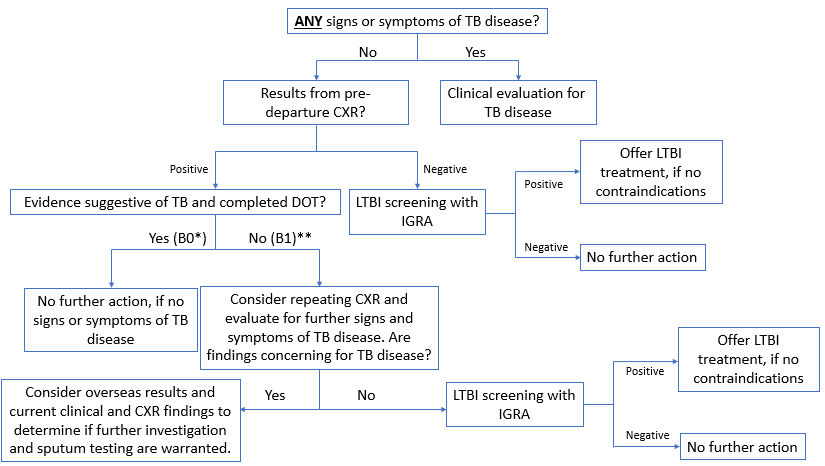Figure 3. Domestic screening protocol for refugees who did not have overseas IGRA testing but had a CXR (most refugees aged >15 years)
Alternative Format
Back to Original Page

Figure 3’s flowchart outlines the domestic screening algorithm for refugees aged >15 years.
If there are ANY signs or symptoms of TB disease, then the refugee should receive a clinical evaluation for TB disease. If there are not any signs or symptoms of TB disease, then what are the results from the pre-departure CXR?
- If the CXR results are negative, conduct an LTBI screening with IGRA.
- If the LTBI screening is positive, offer LTBI treatment, if no contraindications.
- If the LTBI screening is negative, no further action is needed.
- If the CXR results are positive, is the evidence suggestive of TB and completed DOT?
- If yes (B0*), no further action, if no signs or symptoms of TB disease.
- If no (B1**), consider repeating CXR and evaluate for further signs and symptoms of TB disease.
- If repeating CXR and evaluating for further signs and symptoms of TB disease, are the findings concerning for TB disease?
- If yes, consider overseas results and current clinical and CXR findings to determine if further investigation and sputum testing are warranted.
- If no, offer LTBI screening with IGRA.
- If the LTBI screening is positive, offer LTBI treatment, if no contraindications.
- If the LTBI screening is negative, no further action is needed.
* Refugees that received tuberculosis therapy as DOT, carefully supervised by a US panel physician, will be designated with a B0 classification. Those treated outside the panel physician system will be classified as B1 TB, Pulmonary. State and local TB officials will be notified via the EDN of arrivals with Class B status.
**In rare circumstances, refugees may receive LTBI treatment prior to departure. In this case, if no signs or symptoms of TB disease, further evaluation is not needed.
Note: Either IGRA or TST are acceptable tests. However, IGRA is preferred for persons ≥5 years of age.
